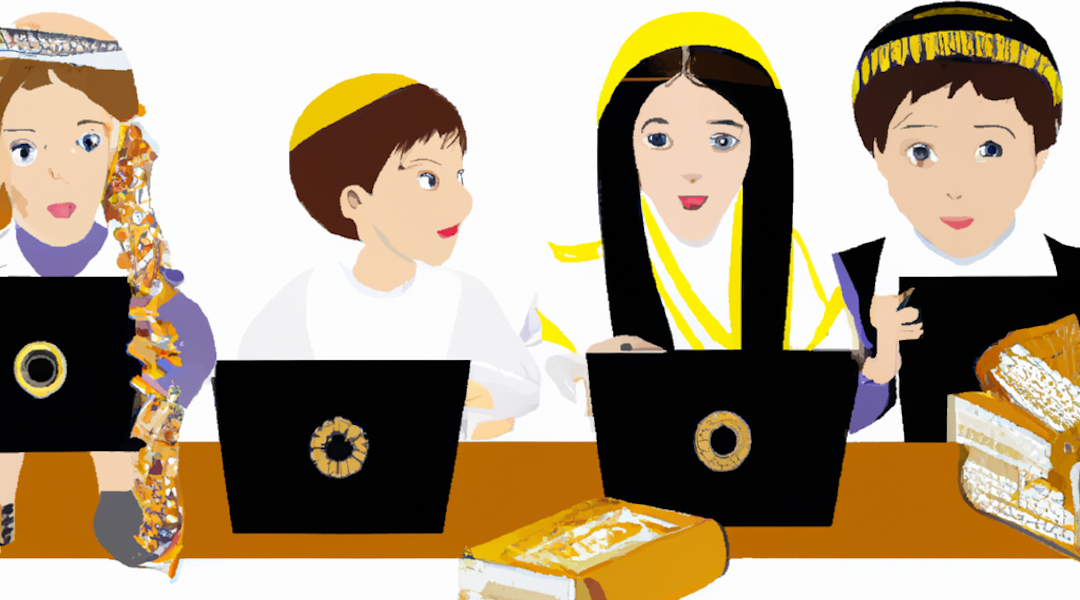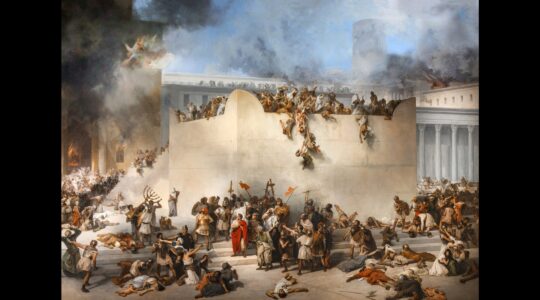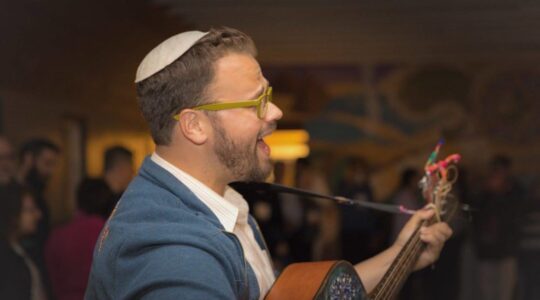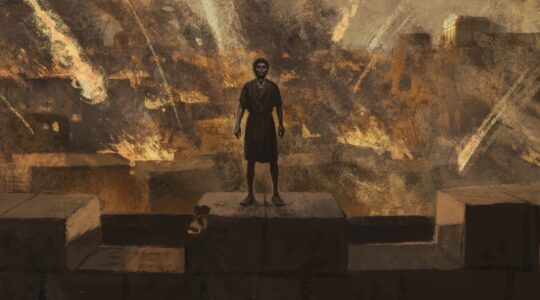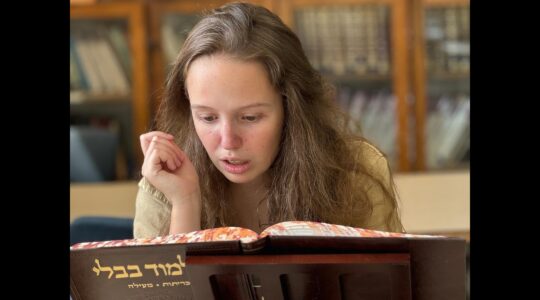This article was produced as part of JTA’s Teen Journalism Fellowship, a program that works with Jewish teens around the world to report on issues that affect their lives.
(JTA) — ChatGPT. Google AI. Microsoft Azure. Scribe. Dall-E2 – all different names for generative artificial intelligence software that is forcing educators to examine how technology affects students’ lives. Jewish educators and rabbis are going a step further and looking at AI through a Jewish lens and considering its effects on the overall Jewish educational experiences.
“The Torah tells us that we’re made in the image of God, so how could AI or Chat GPT and that sort of realm reflect the divine image?” said Rabbi Erin Binder, a leader of the religious school and youth leader at Rockdale Temple in Cincinnati, Ohio, told JTA. “Because there’s no sense of God or spirituality or relationship or connection in the world of AI.”
This relationship between God and Jewish education is just part of the debate over whether AI belongs in Jewish learning institutions. Educators worry that students will use AI as a shortcut to real problem-solving, or that typing a prompt into a website will undermine the traditional face-to-face learning of the Jewish study hall.
Generative artificial intelligence technology generates answers to questions by culling large sets of data, then creating a response — anything from an essay to a painting to an equation to a line of computer code — by learning from patterns and mimicking human-like responses. It’s become a resource for students who need to complete assignments — sometimes as a helpful research tool, and sometimes as a cheat. For Jewish educators who consider the student-teacher relationship as a key part of studying rabbinic literature, AI poses a disruption to Jewish culture and traditions.
While Rockdale’s Binder has used AI to create summer merchandise logo ideas to place on sunglasses for her students, she does not trust it in a learning setting — especially when it comes to students’ preparing their b’mitvah and d’var Torah speeches. “I don’t know that it has a place in a learning setting for young people,” said Binder. “Because part of what we want them to do is to think creatively and to come to these ideas on their own.”
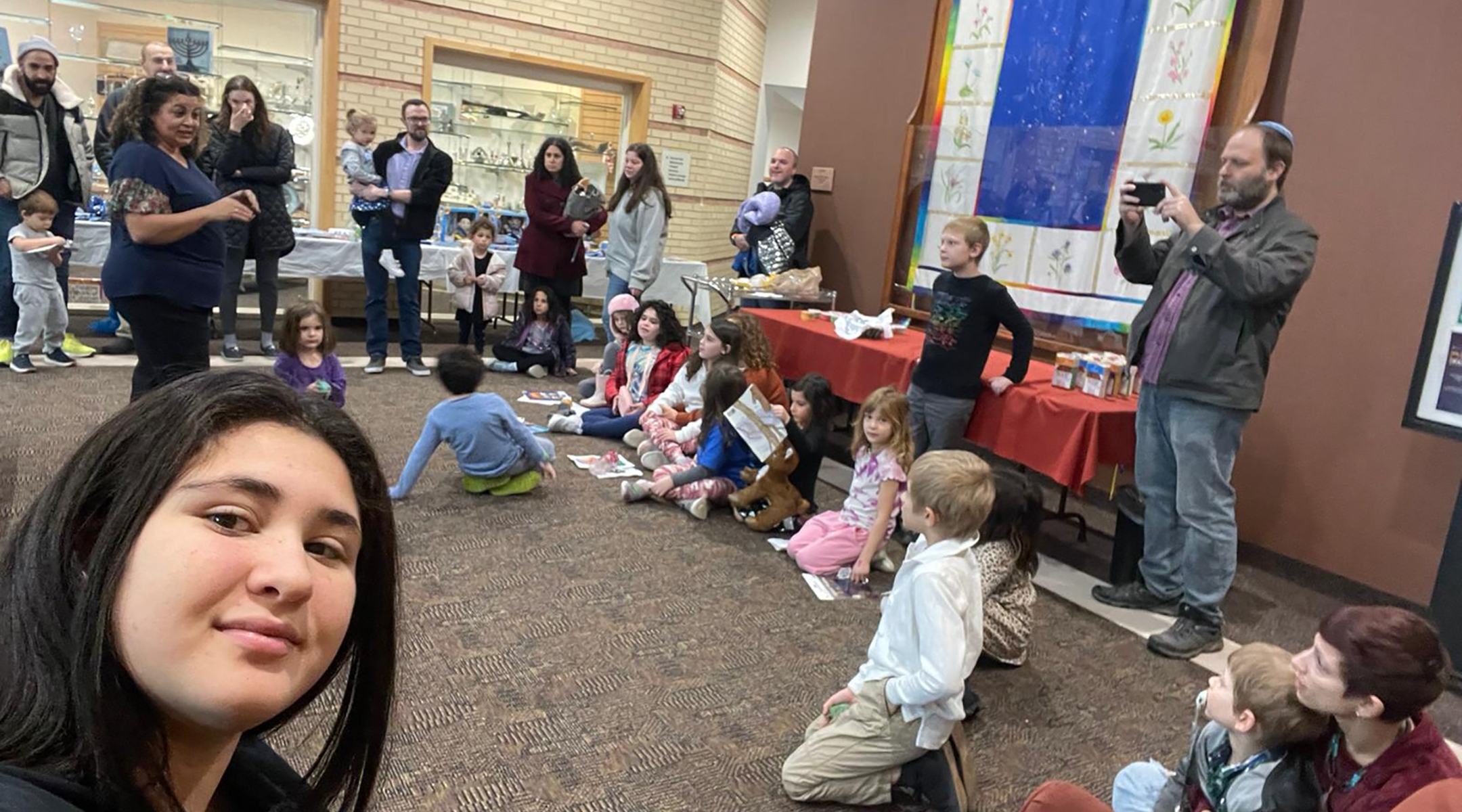
Student-teacher Noam Lahyna works with first- to third-graders at Adeth Israel Congregation’s religious school in Cincinnati, Ohio. (Noam Lahynai)
She has not yet spoken to her students about the use of AI in the synagogue setting. She trusts her students understand that AI can assist or inspire, but would not fulfill the purpose of their task to teach about the Torah.
This is not the view all students take, however. Maya Jaffee, a teen congregant at Rockdale Temple, sees how AI could be an extension of her Judaic education. The “pursuit of knowledge is what Judaism is all about,” Jaffee, 16, said. She hasn’t used AI yet but hasn’t ruled it out. “I think it would just help me deepen my Jewish identity, deepen in a powerful way,” she said. Jaffee is thinking about using AI to help her include more prayers in her day, as there are limited resources to support her that are not based in Christianity.
When JTA asked ChatGPT to create a prayer schedule, it provided five prayers that could be used throughout the day, including the times to say each prayer and the reason each prayer is said. The AI advised the user that observant Jews may follow different customs and more accurate information would be better found from a religious authority or a local synagogue.
Other students believe that AI will have little impact specific to the Jewish community. Eden Kraus, 15, another teen congregant at Rockdale Temple, heard about AI being used in her synagogue when a teacher was absent and the substitute needed to make a last-minute lesson plan for their students. Kraus was not part of that classroom, but sees the value of AI as a tool for teachers. Otherwise, Kraus, who attends a public school, doesn’t feel any impact at her Jewish education since her religious school does not assign writing or homework.
School administrators across the United States have implemented changes in their classrooms to ensure students use AI with integrity, as well as safely. Rachel Lebwohl, technology director at The Leffell School, a Jewish day school in Hartsdale, New York, said her school created forms and policies for the 2023-24 school year, to set expectations and safety regulations for students using AI.
Students over 13 are asked to sign a Responsible Use Agreement statement that quotes a passage from the Babylonian Talmud, Shabbat 31a: “That which is hateful to you do not do to another; that is the entire Torah, and the rest is its interpretation. Go study.” The form says that academic excellence requires students to value their learning as well as their critical and creative thinking abilities. Under those terms, students will not use AI platforms for academic assignments without permission from teachers. It also states that if using AI in the classroom, students will fact-check all information they receive and understand that AIs are prone to errors and misinformation.
Younger students are restricted from AI entirely.
“One thing about Jewish education is that you have a beit midrash kind of concept and you have one-on-one learning. And I think that is human-to-human at its best,” said The Leffell School’s Lebwohl. Beit midrash, or study hall, emphasizes learning classic texts in pairs and group settings. “I would never want to see that become diluted because there is technology out there that looks and feels like it is equivalent,” she said.
However, education professional Samantha Vinokor-Meinrath sees the potential of AI to enhance Jewish education. As senior director of Knowledge, Ideas and Learning at the New York-based Jewish Education Project, she encourages educators to embrace AI. The connection between the two was the focus of last spring’s Jewish Futures Conference, which she runs.
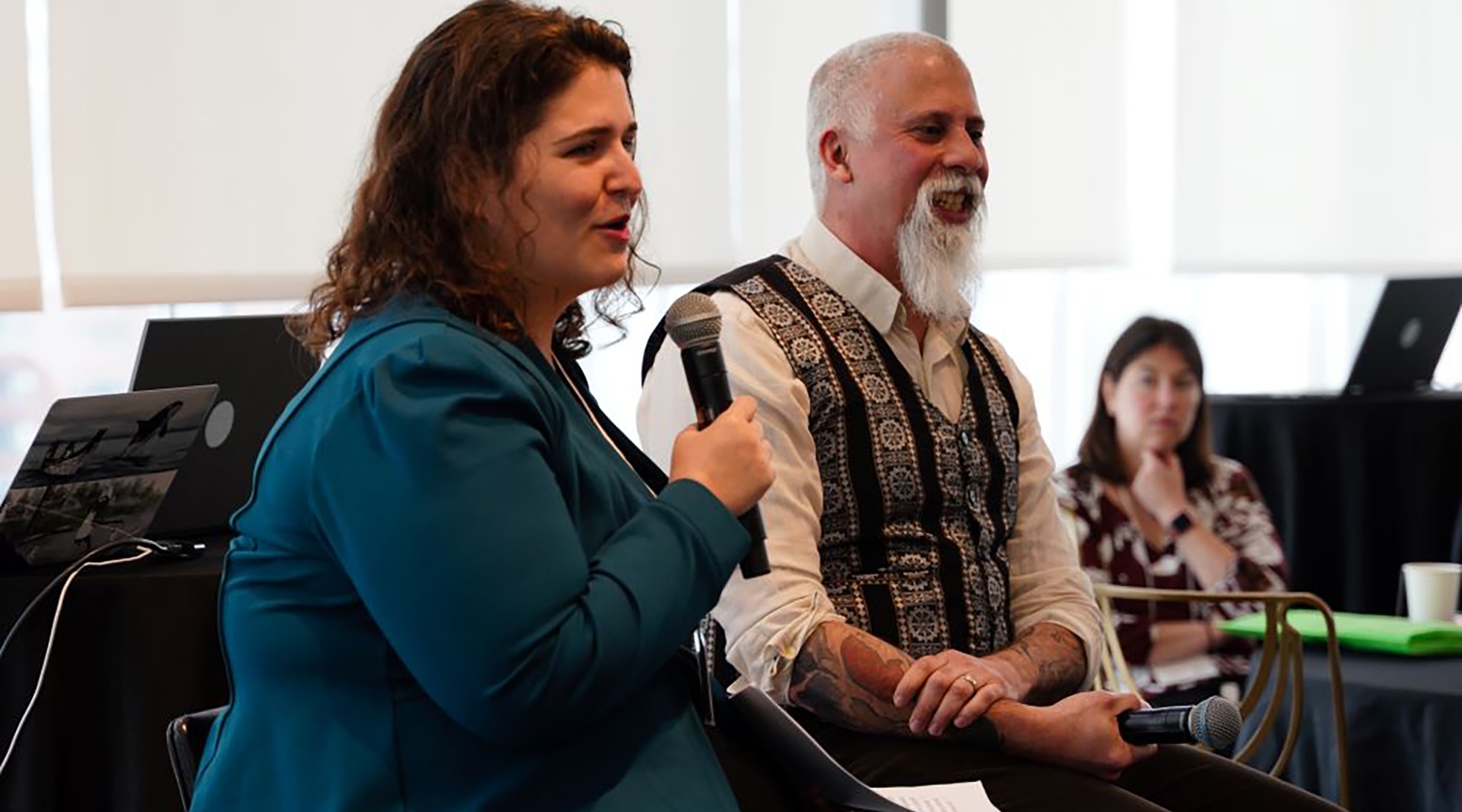
Samantha Vinokor-Meinrath at the Jewish Futures Conference last spring, which focused on AI in Jewish education. (Courtesy)
“I think we’re at a really exciting moment where Jewish education is seeing all the possibilities that AI can offer,” she said. She suggests teachers explore how AIs could help teachers run their classrooms more efficiently.
Vinokor-Meinrath leans into the teaching moments AI can provide. When she asked an AI graphics generator to show her a Jewish woman, it provided her with a stereotypical image of a woman with curly brown hair and a large nose. She considers this a chance to talk about the powers of stereotypes and how current algorithms, often based on real-world biases, see Jewish women, and what could be done to change the way AI perceives and provides images about the Jewish community.
“When we think about how technology is learning the ways of the world and what it means to look Jewish and to be Jewish, what do we have to do to be able to think critically when we use it and not just take what an artificial intelligence says Jewish looks like at face value?” Vinokor-Meinrath said.
Student-teacher Noam Lahynai, 15, has not seen the effects of AI during her work with first- to third-graders at Adeth Israel Congregation’s religious school in Cincinnati, Ohio. Due to their age, they have limited access to the internet. However, Lahynai has told her students about the expectation that they not use online tools such as Google on their Hebrew assignments; this rule extends into using AIs. She sees AI as a tool to enhance current learning and understanding, but not as an exclusive tool for learning. “I think that people should think about it as a tool to help expand understanding,” she said, while remaining aware that “it might not give all the information and everything that they need.”
Lahynai’s students have not used AIs in her class, however she has seen a camp peer relying on AIs to create his b’nai mitzvah speech. Last June, while at camp, Lahynai and other campers noticed that a b’nai mitzvah speech by a fellow camper sounded impersonal. Later when the camper was questioned by peers, he confessed to using AI to create his speech. Camp administrators and staff did not give any form of repercussion to the camper.
Lahynai saw this moment as impersonal and lazy, feeling that the camper had been disrespectful for turning to AI to write his speech. “He didn’t take the time to think about the meaning behind it,” she says. “He kind of like disrespected the whole thing.”
Despite the potential for abuse, Vinokor-Meinrath remains upbeat about the effects the technology will have on the Jewish educational community. “So much of what Jewish education looks like today was designed for a previous generation that we’ve in some ways been able to adapt and update,” she said. “When we think about the Jewish future, we’re really trying to plan for tomorrow’s learners today. And I think AI is a tremendous way to think about tomorrow, today.”
